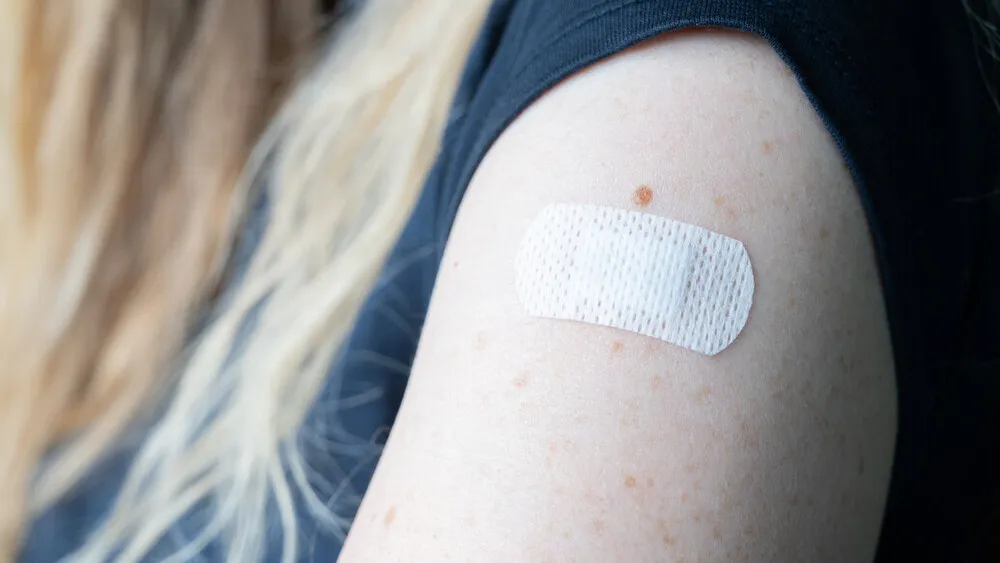




The New, Updated COVID-19 Booster: Can It Prevent Symptomatic Infection? And Other FAQs
Published: Nov. 23, 2022

The CDC’s recommendation of the first updated COVID-19 booster seems to be spurring more questions than ever regarding safety, efficacy and timing. Should you get it? If so, why and when?
If you have questions and want more information before rolling up your sleeve, you’re not alone. Here’s a list of FAQs to help you make the most informed decision possible.
Q: What’s different about this new COVID-19 booster compared to the previous one?
A: This modified booster, or bivalent vaccine, is made the same way and with the same technology as prior COVID-19 vaccines. The difference is that it offers protection against not only the original COVID-19 strain but also two of the most recent Omicron subvariants – BA.4 and BA.5 – which have been causing most of the recent COVID-19 infections.
Q: Any chance that the updated boosters offer better protection against infection, and not just serious illness and complications?
A: Yes! According to the CDC, these bivalent vaccines are better at preventing symptomatic infection than earlier doses.
Q: Who is the new booster for?
A: The new Pfizer-BioNTech booster is authorized for anyone 5 and older. The new Moderna booster is authorized for anyone 6 and older. If you fit the age criteria and have completed the original COVID-19 vaccine series, you’re eligible to get one of the new boosters at least two months after the original series, two months after any COVID-19 booster or three months after COVID-19 infection.
Remember: These new boosters replace previous boosters, but not the primary COVID-19 series.
Q: So does this mean the older boosters are basically useless?
A: The previous boosters are not useless. They still offer some protection, but they’re now essentially obsolete. Like your old smartphone, they have a use. But why use the older version when you have access to a newer and better one?
Q: What’s the recommendation on mixing and matching? For example, if my original COVID-19 vaccine series was Moderna, can I get the updated Pfizer-BioNTech booster?
A: There’s not yet data regarding mixing and matching the new boosters with prior COVID-19 vaccines. When looking at data from the previous boosters, mixing and matching was safe but didn’t necessarily mean better protection against COVID-19. It’s most important to get whatever booster is available once you’re eligible.
Q: Should we just expect updated COVID-19 boosters every so often? Just like getting a flu shot every year?
A: Yes, we should expect new COVID-19 boosters from time to time. But how often we’ll need them likely depends on whenever a new COVID-19 variant emerges and whether it has a big enough impact on the current booster’s efficacy. Furthermore, we don't yet know how long these updated boosters offer protection.
Q: If I didn’t get the previous booster, why should I consider this one?
A: The data surrounding our previous boosters has shown them to be safe and effective. And these new boosters target more strains, which will hopefully translate into better protection against COVID-19 infection, reinfection, serious illness, hospitalization and even death.
Also, this winter will be different. Remember, we were still masking in most places last winter; now, masks are practically a thing of the past. COVID-19 hit nearly everyone – some were even reinfected – this past spring and summer when we were spending most of our time outdoors. Heading back indoors and to school without masks amid much more contagious COVID-19 subvariants is all the reason anyone should need to strongly consider getting a new booster.
Q: Why were these updated boosters cleared ahead of full-blown clinical trials/studies in people?
A: Most of us probably prefer to have larger trials in people before using a medication or vaccine – or at least more history with a medication or vaccine if relying solely on animal studies. However, the new boosters are made like the original COVID-19 vaccines, and they’ve shown a good track record regarding safety. They’ve been given to hundreds of millions of people without issue.
The FDA and CDC panels had to look at the risk of COVID-19 as we head into the fall and winter. When looking at the risks of infection and illness versus the risk of significant issues with the vaccine, they determined the risk of infection, serious illness and death were greater. The FDA expects it’ll be another month or two before human data is available. Waiting that long for a booster that offers the most up-to-date protection is quite the gamble.
The Takeaway
So should you consider a new booster? Of course, always talk to your provider. But the quickly mutating nature of COVID-19 and the countless lives lost has many medical experts scratching and shaking their heads over why more people aren’t taking advantage of such effective technology.
If you’re eligible, consider rolling up your sleeve as soon as possible. We’ve finally caught up to these contagious subvariants it seems, and together we can help dictate how this fall and winter play out.
More Resources
- Schedule your COVID-19 vaccine or booster today.
- Find a primary care provider.
- What are pediatricians saying about the COVID-19 vaccine for kids under 5? Read more.


